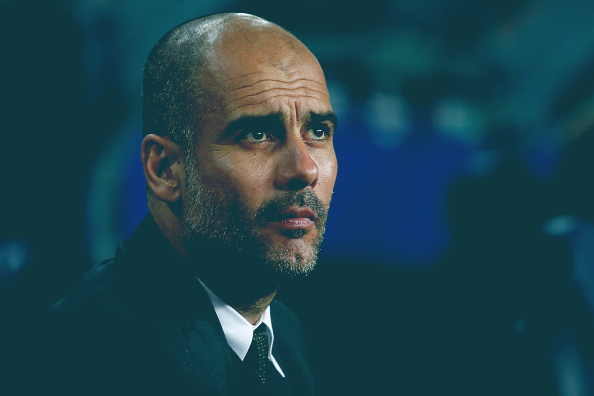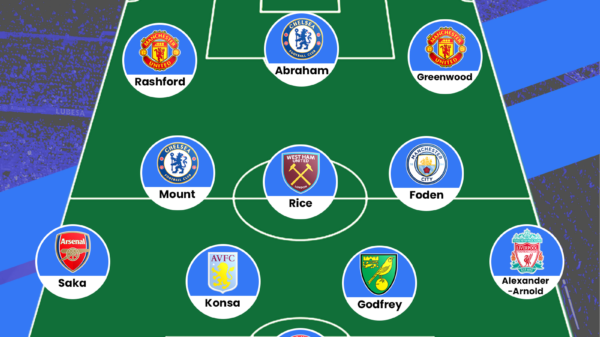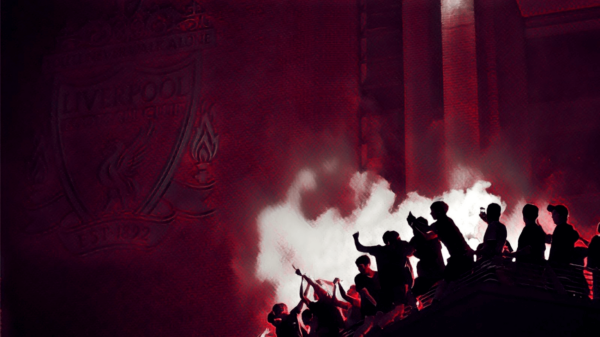Perhaps the biggest move in the Premier the past summer was one that involved the dugout rather than the pitch. Manchester City snapping up Pep Guardiola was widely regarded as a coup. A speed bump has been hit recently though which raises the question, is Pep too much of a perfectionist?
Josep ‘Pep’ Guardiola is already a mythical figure in the world of football management. 72.8% win rate, 22 trophies won, including 2 Champions’ League, 3 La Liga and 3 Bundesliga titles, all in just over 7 years of active top-flight management. Crazy stats, really. And he’s only turning 46 in January. His best coaching years may yet be ahead. The prospect is frightening.
Pep has established himself as an intelligent, highly diligent manager, with an extreme obsession for possession-based football. Possession is than nine tenths of the law for him. Pass, pass, pass the ball, and when you’re tired of passing, pass some more. Having been bred in Barcelona’s famed farmhouse, La Masia, he refined the Catalans’ philosophy during his 4 years at Camp Nou, producing an almost unstoppable beast that swept away all challengers without breaking a sweat, and bringing out one of the best, if not the best, players of all time in Leo Messi. That those four years also marked the period of Spanish domination of international football is more than coincidental.
His stint at Bayern was largely successful, having won the Bundesliga on all 3 attempts, but 3 CL semi-final exits, incidentally all at the hands of Spanish teams, took some lustre off his record. Add that to his predecessor’s treble triumph, and his own, and his detractors could add to the claim that he had had it easy in Spain. The Premier League seemed the logical next step to prove his mettle. Cue Man City.

Manchester City manager Josep Guardiola gestures during a training session ahead of the UEFA Champions League match against Barcelona. (Photo by Chris Brunskill/Getty Images)
In a summer of managerial, rather than player, transfer coups, Man City’s capture of Pep Guardiola was undoubtedly the biggest of them all. The Citizens were elated, and they welcomed their new manager like a god, as the rest of the league looked on in envy and in fear. Pep + Aguero = league title, they said.
City certainly had lived up to that high expectation in the early part of the season. They won their first 10 games, blowing away the opposition in almost all of them. The Manchester derby was another tantalizing episode in the Pep v Jose rivalry, and the former one-upped his nemesis with a brilliant tactical masterclass. City have also been playing the Pep way, with amazing superiority in possession and passing statistics, and goals.
However, City are not Barcelona or Bayern. First, the Premier League is much more cut-throat than the Bundesliga or La Liga, and even more so after the managerial recruitments this season. Second, City do not possess the calibre of players Pep had at his disposal at his previous clubs. Some are young, some are new, some are injury prone, some are just not world class. Therefore, enforcing his Barcelona-esque blueprint was always going to be a challenge.
The past few weeks have been a painfully evident reminder of this fact. After a perfect start to the campaign, the wheels seem to have suddenly come unstuck. 3 draws and 2 losses in 5 games have suddenly turned City from unbeatable to vulnerable. But maybe all the signs were there all along. Of their 10 wins, only 4 were with clean sheets, 2 of which were against a seriously inferior Steaua Bucharest. Claudio Bravo made a mess of his debut in the derby, but United were not ruthless enough to punish him.

Pep Guardiola shakes hands with Luis Enrique during Champions League group C match between FC Barcelona and Manchester City FC at Camp Nou on October 19, 2016 in Barcelona, Spain. (Photo by Shaun Botterill/Getty Images)
City’s defensive frailties have been clear for all to see. Bravo has been terrible at times, John Stones and Nicolas Otamendi, and most recently Vincent Kompany, have not gelled, and Fernandinho hasn’t excelled as a defensive midfielder. But they were so dominant in possession that their forwards’ performances papered over the cracks. Brendan Rogers’ Celtic were the first to seriously press the defence. Tottenham then refined the tactic, pressing them all over the pitch, leaving Sergio Agüero and Kevin de Bruyne isolated, before Barcelona exposed their defensive inadequacies with efficient brutality.
All these defensive problems may partly be attributed to Pep’s obsession with playing from the back. Joe Hart was, perhaps unfairly, shipped out, because he doesn’t play with his feet. He may certainly feel vindicated given his replacement’s performances. Bravo is world-class, but he’s a traditional-style goalkeeper, and is not well equipped to meet Pep’s demands. Neither is Otamendi.
The game at the Nou Camp also was a second defeat in as many trips back to where it all began for Guardiola, having conceded seven goals without reply on aggregate. City tried to outplay and outpass the opposition, but Messi and co. had other ideas. Pep’s first visit was with a depleted Bayern side, but with the same philosophy. The result? Neuer’s first-half heroics kept the scoreline at a respectable 3-0.
Now, Guardiola’s philosophy is extremely brilliant, but his rigidity may prove his own undoing. Modern football requires both attacking panache and defensive discipline, and his blueprint seems to be deficient in the latter regard. As Chelsea so clinically showed recently, you don’t have to dominate possession to beat your opponents hands down. Attacking from the back is not always the best option, especially in a league as intense and as competitive as the PL.
During his press conference after the Barcelona game, Pep insisted that he will stick with his style, and that he’d rather go home than change it. Four days later, Stones and Kompany suffered miscommunication while trying to pass from the back, and Nathan Redmond was on hand to take full advantage. Since Tottenham, teams have now discovered City’s Achilles heel. Press Bravo and the centre backs whenever they have the ball, because they will try to pass around instead of clearing it out of danger. And Pep won’t change, at least for now. Meanwhile, his teams are hemorrhaging goals, and points.
Pep is already one of the greatest football managers of this generation, and he may have up to two decades yet to go. But as all the greats over the years have shown, tactical adaptability is the key to longevity and sustained success as a manager. No two teams are the same, no two opponents are the same, and no two competitions are the same. No plan, no matter how brilliant, is perfect; no philosophy works all the time, or with all players. Pep needs to find the right players for his system, and tweak the system to fit his players.
When Josep Guardiola eventually calls time on his management career, hopefully in the distant future, he may well do so as the greatest of all time. However, let us hope that his relentless pursuit of perfection does not get in the way of that destiny.
- Is Pep Guardiola Too Much Of A Perfectionist? - November 2, 2016
- The midfield conundrum at Manchester United - September 22, 2016




























































